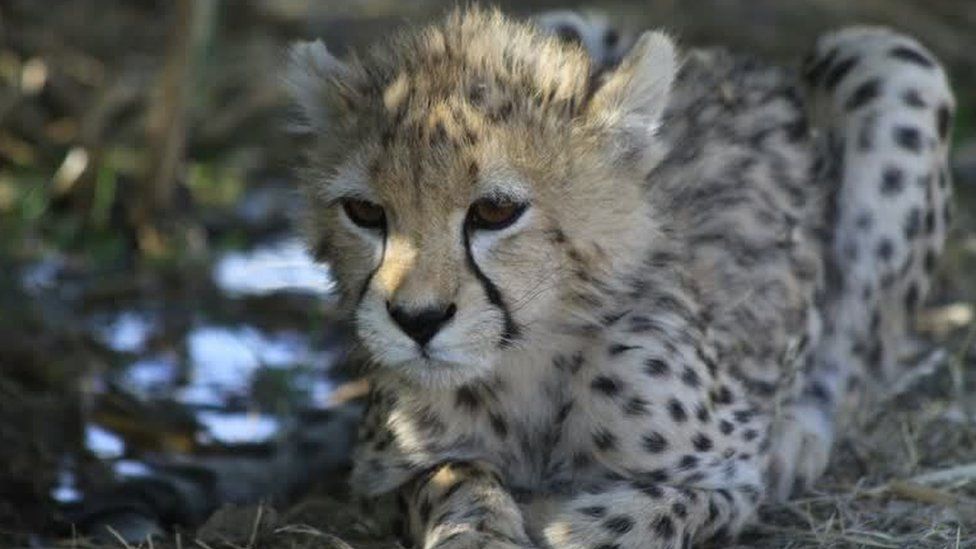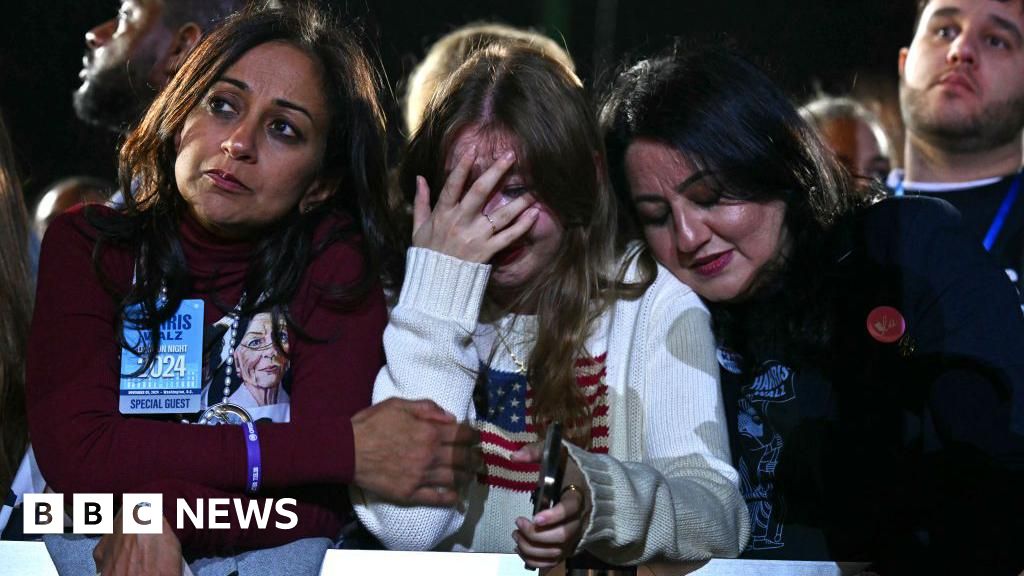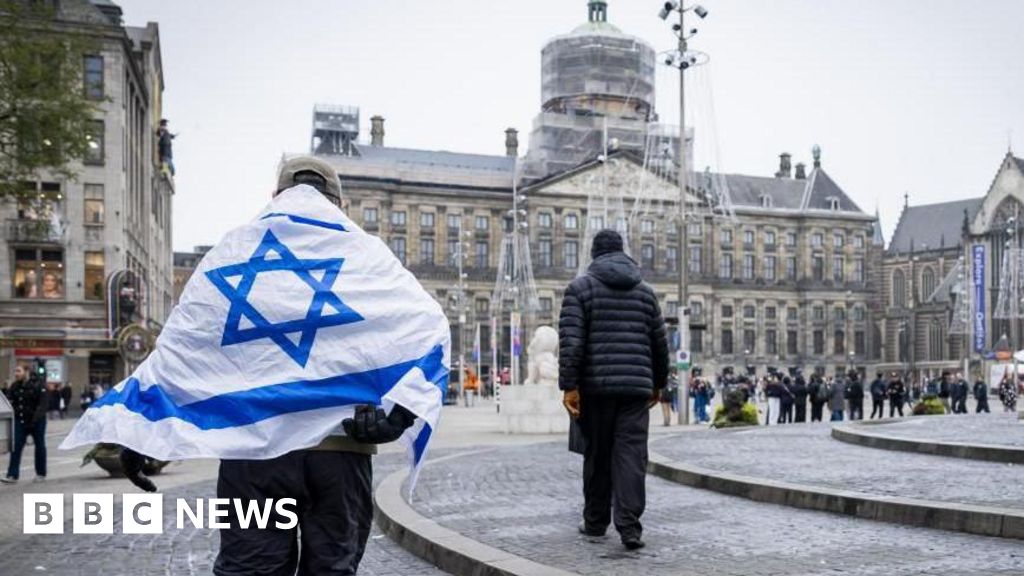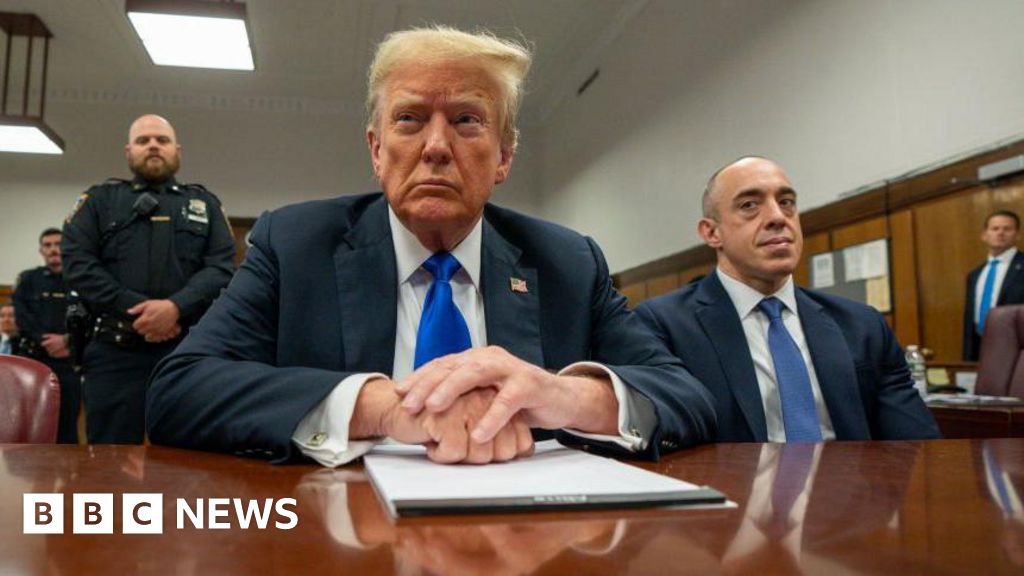ARTICLE AD BOX
 Image source, Iranian Department of Environment
Image source, Iranian Department of Environment
By Ali Hamedani
BBC World Service
Iranians are mourning the death of an Asiatic cheetah cub - one of the last in the world - which became a symbol of hope for anti-government protesters.
Pirouz, or Victory in English, had become a social media sensation after surviving against the odds.
It died from kidney failure in a clinic in Tehran last month, sparking an outpouring of tributes online.
The cub had been lauded by protesters, who saw its perseverance as mirroring their own determination.
The country has been swept by anti-government protests since September following the death in custody of a woman held by Iran's morality police.
From the very beginning, millions of Iranians began following Pirouz's journey online and in the media.
Despite the fact only 12 wild Asiatic Cheetahs are thought to live in Iran, the country remains one of the last strongholds for this critically endangered species of wild cat, according to Iranian officials.
Cheetahs are a symbol of national pride in Iran. They appear in Persian poetry and paintings, and even on the national football team's jersey to symbolise speed and power.
But the little cheetah cub Pirouz, has become an icon in its own right.
In 2022, the cubs' mother, called Iran, was transferred to Touran, a wildlife refuge centre in the north-west of the country, where she was matched with a male called Firouz.
Image source, Alireza Shahrdari Social Media
Image caption,Alireza Shahrdari, Pirouz’s main caretaker, sometimes even slept next to him.
Iran bore the three cubs in May, all delivered by a caesarean section. But rejected by their mother, the cubs' survival hung in the balance.
"Iran [mother] didn't instinctively recognise her cubs and pushed them away," says Dr Payam Mohebi, President of Iranian Veterinarian Association.
The nation watched on as two of the cubs died within days due to malnutrition and organ failure.
Many voiced their anger at the authorities, blaming them for the death of the cubs and a general apathy towards environmental issues.
But there was still a chance to save Pirouz.
That was when Alireza Shahrdari, an Iranian environmental activist, was assigned to take care of him.
Every night, Mr Shahrdari would sleep next to the little cub.
When videos of Pirouz sleeping next to his "human dad" emerged on social media, they became a viral sensation, capturing the hearts and minds of millions of Iranians.
Pirouz was five months old when the protests erupted across Iran.
Still suffering from multiple health conditions, photos of Pirouz were hailed on social media as "Iran's triumphal son" for surviving so many complications.
By his name and nature Pirouz became a symbol of solidarity for many of the anti-regime protesters.
Pirouz's battle to survive was even portrayed in Iranian musician Shervin Hajipour's Grammy award winning song, Baraye, which means "for the sake of" in Persian.
The song's lyrics are composed of a collection of tweets by Iranians lamenting the situation in their country: "for the sake of dancing in the streets"; "for the fear of kissing; "for the sake of Pirouz and the risk of him looming extinction"; "for the sake of women, life, freedom".
Pirouz reportedly died from kidney failure, in the arms of Mr Shahrdari on 26 February.
Social media erupted with epitaphs to the tiny cub.
"His life was short but his name and memory will be in our hearts forever," said Dr Mohebi.
"In the shadow of the Islamic Republic, neither animals nor humans are safe" tweeted Ali Karimi, Iranian football coach and former national player.
Asked for comment by the BBC, the Iranian Department for the Environment did not reply.

 1 year ago
24
1 year ago
24








 English (US)
English (US)